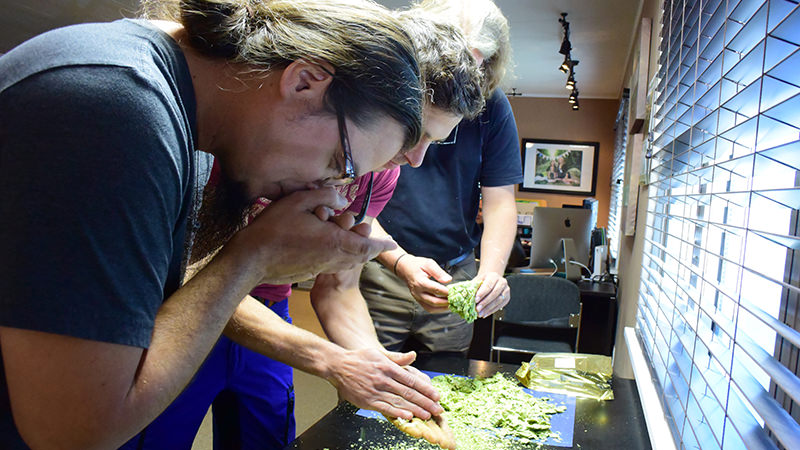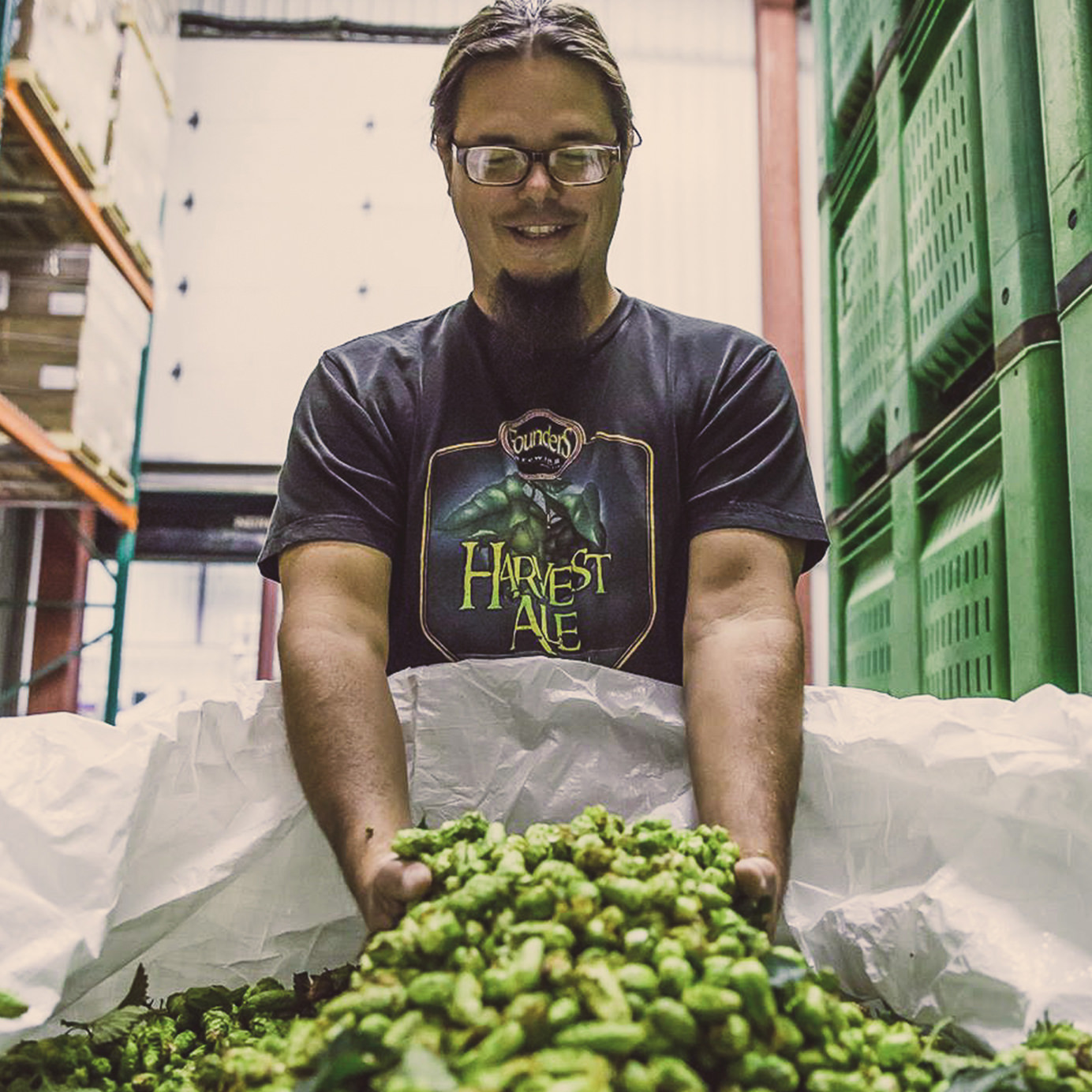What makes a single hop worthy of having its own dedicated beer? Increasingly, for the past few years, breweries like Green Flash, Cahaba, Mikkeller, and Founders Brewing Company have been exploring the complexities of individual hop breeds in single-hop beers.
As the brewmaster of Founders Brewing Company, Jeremy Kosmicki isn’t afraid to brew the beer he wants to drink. It’s the ethos that guides the brewery: “Brewed for us.” And in many cases, that means letting a single hop shine (or dominate, depending on how you look at it).
Founders’ latest single-hop beer to be made widely available is its Mosaic Promise. Sold in 15-pack cans and featuring mosaic hops and golden promise malt, this marks the first time the beer is being offered in this format since its 2014 debut. It joins Founders’ two other single-hop beers, Azacca IPA and Centennial IPA.
I caught up with Kosmicki to figure out what’s so good about single-hop beers, what makes any hop deserving of its own singular beverage, and what he would choose if he could only use one hop for the rest of his life.
With Centennial, Azacca, and Mosaic, there’s clearly something you like about single-hop beers. What is it about using one hop that makes a beer stand out on a crowded beer shelf?
It’s just a nice way to differentiate. There are so many IPAs and hoppy beers in general – this is a cool way to get the consumer thinking about the typical characteristics of a particular hop.
What makes a hop worthy of having a beer dedicated to it?
There’s a lot of new hop varieties coming out, and most of them are probably being developed with the IPA craze in mind. Brewers and growers are looking for hops with big, interesting flavors and aromas, yet different character nuances. I’d say any hop with nice clean bitterness properties and intense yet pleasant aromas would fit the bill.
Are there any hops that you would never make a single hop beer with?
Well, because I generally look to have a single-hop beer really feature that hop (in a pale or IPA style), I probably would personally avoid hops with predominantly earthy or spicy character. I love those hops for dark beers, but I like my pale, hop-forward beers to feature something bright and fruity.
On a similar note, are there any hops that you tried to make a single- hop beer with and it didn’t work out how you wanted?
A lot of times when you smell a raw hop, you get certain aromas, but those don’t necessarily transfer through to the finished beer the way you expected. It’s pretty common, actually. I find that with quite a few of these newer experimental varieties. That’s why it’s so important for growers to work with brewers and get actual feedback on how they perform in the brewery.
Who are these single-hop beers mostly for, hop heads and beer nerds, or the casual beer drinker?
I certainly think they can be balanced and approachable enough to cater to the more casual drinker, but it’s the hop heads that will probably appreciate them the most.
With all the stuff being done to beer recently — brewers throwing in everything from terpenes to chicken fingers — there’s something to say about a return to the basic ingredients that make a beer. Do you think there’ll be a wider return to simplicity, with even more single-hop beers to come from Founders and others?
We really love hops around here. Fortunately our portfolio is big enough that we can offer an array of malt-forward beers, dark beers and fruit beers, and still get away with having a half dozen IPAs in our catalogue. My plan is definitely to continue to test out new hops for our grower and breeder friends and help discover something new and awesome. It’s a big part of what we do and I don’t see that ending anytime soon.
One danger with bringing something down to its bare bones is that you can’t blend in other flavors to cover up imperfections, making any flaws all the more obvious. What’s the hardest part about making a single-hop beer?
You certainly want to use enough hops to really make them the focal point, but the bitterness and/or raw vegetable-like astringency can tend to get out of hand sometimes.

I got the chance to check out some hop farms with you last year, including some farms that were working on experimental hops. Are there any up-and-coming new hop varieties you think will be good enough for a single-hop beer in the future?
I haven’t come across anything in the past year or so that I think is ready for packaging up and sending out to the world. But we’ll keep piloting beers through our taproom and see what happens.
If you could only use one hop for the rest of your brewing career, what would it be and why?
Tough call. I’d probably go with Simcoe if I can select them. I really like the combination of tropical fruit along with some fresh pine, especially if they’re harvested at the right time.
